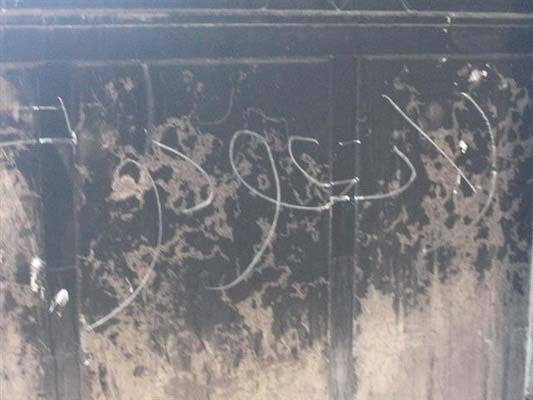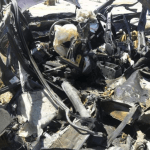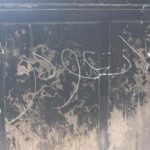JERUSALEM (Morning Star News) – Egyptian Christians in North Sinai feel unprotected and in danger following threats and a machine-gun attack that has driven several families from the border town of Rafah.
“The situation of Christians in Sinai is very dangerous,” said Yusuf Zaki, spokesman for the Egypt Coptic Alliance. “They feel that they are not protected by the government and the army, and in fact the army is unable to protect its own soldiers and posts.”
Zaki told Morning Star News that Muslim extremists on both sides of the Sinai border with Gaza pose a threat.
“The feeling is that those who threaten the Christians are not only local Islamists, but Palestinians from Gaza who cross the border freely and who now threaten the Christian existence in Rafah and other places in Sinai,” he said. “We are afraid that these radical elements will be given a free hand in Sinai and possibly even occupy this area, which was inhabited by Christians for centuries.”
Following the attack on a Christian-owned grocery shop in Rafah last week (Sept. 26), store owner Mamdouh Nasef said it was a miracle he survived. Nasef was away with his family when two masked men riding motorcycles approached the building and opened machine-gun fire on his shop.
The attack came after all Christian families in the town received anonymous threats – leaflets placed at their doorsteps in the night stating that if the families didn’t leave within 48 hours, they “will suffer.” The leaflets also mentioned that Rafah was a part of an “Islamic Emirate in Sinai,” implying that Christians were not welcome there.
Seven Coptic families felt these were not empty threats and left for el-Arish, capital of North Sinai, to seek protection.
Now the Christian population of Rafah is reduced to two families. They say they have no place to go, even if they feel imminent danger to their lives. Nasef has decided to reopen business but told local media he was considering returning to his hometown in southern Egypt.
The Islamic extremist threats and bullets were the latest wave of anti-Christian violence in Sinai since the beginning of Egypt’s Jan. 25-Feb. 11, 2011 revolution. On Feb. 5 last year, the Church of the Holy Family and St. Georgein Rafah was set on fire, with graffiti on the charred walls declaring, “It’s a land of Islam, no room for Christians here.”
At that time a few families, including that of the bishop of North Sinai, felt they were in danger and left their homes, belongings and history behind to go to el-Arish. Bishop Kozman continued visiting his parish regularly; he has said no further security arrangements were made to protect the small community.
After the threats and machine-gun fire, the governor of North Sinai, appointed by President Muhammad Mursi, offered the Coptic families accommodation in el-Arish. Then, after criticisms that his offer effectively displaced a minority group, he suggested they go back to Rafah, saying that protection would be provided.
“When the governor of North Sinai offered the families of Rafah to relocate to el-Arish, they understood that the criminals weren’t going to be dealt with, and that just increased their fears” Kozman told Egypt’s al-Watani newspaper.
‘Voluntary Deportation’
When word of this Coptic “voluntary deportation” spread, the Egyptian government quickly made several gestures.
The government newspaper, Al-Ahram, published a statement by President Mursi promising to protect the Christian Copts and urging them to return to their homes. At the same time, Prime Minister Hisham Kandil, who was touring the Egyptian-Israeli border at Taba, told journalists that “the militants didn’t try to evacuate the Copts from their homes. They left on their own accord.”
Kandil acknowledged that the families who left could have been frightened by the leaflets urging them to leave, and he offered, “We must uproot fear and provide all security measures to every citizen.”
Thus far, no one has been arrested for the shop attack in Rafah or the threats against the Coptic families, and Nasef maintains that no additional security measures have been taken.
Approximately 5,000 Egyptian Christians reside in Sinai, which is also home to St. Catherine monastery and many other ancient monasteries and churches.
The security vacuum in Sinai became apparent in August, when a group of militants attacked an army base in Rafah and killed 17 Egyptian soldiers. Since the beginning of the revolution at Tahrir Square, Sinai has become a battlefield between radical Islamists groups and Egyptian security forces.
“Operation Eagle,” which was supposed to clear the peninsula of dangerous radical elements, will soon enter its third month with no discernible results to local residents. In many towns in Sinai, parties and organizations from the Muslim extremist Salafi movement now control municipalities and the mosques.
Christians in Sinai fear that central authorities won’t be able to provide genuine security any time soon.
Troubled Past
Persecution of Egyptian Christians, however, did not start with last year’s revolution. It has persisted for decades under all Egyptian presidents that have come to power since the revolution of July 1952.
On Jan. 1, 2011, as members of the Coptic Orthodox Church of Saint Mark and Pope Peter (Church of the Two Saints) were leaving a midnight New Year service, an explosion from a suicide bomber killed 23 people, including 21 Christians. In 2010, Christian communities suffered multiple attacks based on false rumors that Christians were holding a Muslim convert in a church against her will.
Since the fall of the regime, Coptic Christians have been subjected to attacks in Qana and Minya (Upper Egypt), Alexandria, Helwan, Dahshour, during a demonstration at the Maspero building in central Cairo and now in Rafah.
Tens of thousands of Coptic Christians are said to have left Egypt since the revolution, and religious rights advocates say lack of protection as well as pressing economic conditions reveal a growing threat to the existence of the largest Christian community in the Middle East.
###
- Grafitti on charred wall of Rafah church telling Christians not to return




Speak Your Mind